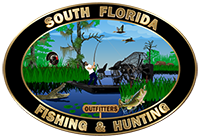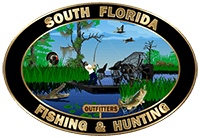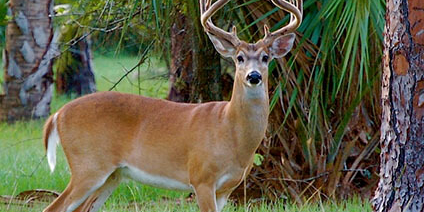Deer hunting in Florida offers a unique and rewarding experience for both seasoned hunters and newcomers alike. With its diverse habitats and varying hunting zones, Florida presents a range of opportunities to hunt white-tailed deer, the most common game animal in the state. To make the most of the Florida deer hunting season, it’s essential to understand the regulations, hunting zones, types of deer, and strategies for success. In this guide, we’ll cover everything you need to know to prepare for your next Florida deer hunt.
When Does Florida Deer Hunting Season Start?
The start of deer season in Florida depends on the hunting zone in which you plan to hunt. Florida is divided into four primary hunting zones: A, B, C, and D, each with its own Florida deer season dates. These zones and dates are established to manage the deer population and ensure a sustainable hunting experience. Here’s a general breakdown of the Florida hunting zones:
Zone A: This zone covers the southernmost part of Florida, including the Everglades. Deer season in Zone A typically begins in late July or early August and lasts until mid-October.
Zone B: Located in central-west Florida, Zone B’s deer season starts in mid-October and runs until early February.
Zone C: Covering central and northern Florida, Zone C has a deer season that typically opens in mid-September and runs until early January.
Zone D: Covering the Panhandle and parts of the northwestern region, Zone D’s deer season generally starts in early October and extends until mid-February.
It’s crucial to check the specific Florida deer hunting zones and Florida deer season dates for the area where you plan to hunt, as these dates can vary slightly year to year. This will help you plan your hunting trips effectively and ensure you’re hunting within the legal timeframe.
Types of Deer in Florida
Florida is home to two main types of deer: the white-tailed deer and the Key deer. The white-tailed deer is the primary species hunted during the Florida deer hunting season, while the Key deer is a protected species found only in the Florida Keys.
White-Tailed Deer
The white-tailed deer is the most widespread and hunted species in Florida. These deer are smaller than their northern counterparts, weighing between 100-150 pounds on average, due to the state’s warmer climate. White-tailed deer are known for their keen senses of smell and hearing, which makes them a challenging but rewarding game animal for hunters.
Key Deer
The Key deer is a smaller subspecies of the white-tailed deer and is only found in the Florida Keys. Key deer are federally protected and cannot be hunted. These deer are much smaller than the white-tailed deer, weighing only about 45-75 pounds. While hunting them is illegal, it’s important to be aware of their presence if you’re hunting in southern Florida, particularly near the Keys.
Florida Deer Hunting Regulations
To participate in the Florida deer hunting season, hunters must adhere to the state’s regulations, which are designed to manage the deer population and promote ethical hunting practices. Before heading into the field, familiarize yourself with the following rules:
1. Licensing and Permits
All hunters in Florida are required to have a valid hunting license and a deer permit. Depending on the type of hunting equipment you plan to use, you may also need additional permits, such as an archery or muzzleloader permit. It’s important to ensure that all licenses and permits are up to date before the season starts.
2. Bag Limits
Florida imposes a daily bag limit of two deer per hunter, with some restrictions on antlerless deer depending on the hunting zone. Be sure to check the regulations for your specific zone, as bag limits can vary based on the population and management goals for that area.
3. Legal Hunting Methods
The legal methods for deer hunting in Florida include archery, crossbows, muzzleloaders, and modern firearms. Each of these methods has its own designated season within the broader deer hunting season. It’s essential to use the correct equipment for the season you’re hunting in and follow all safety guidelines.
4. Antler Regulations
In Florida, antler regulations can vary by zone. Some areas require that antlered deer have a minimum number of points or antler length to be legally harvested. These rules help ensure the healthy growth of the deer population and promote the harvest of more mature bucks.
Understanding and following these Florida deer hunting regulations is crucial for maintaining ethical hunting practices and avoiding fines or penalties.
When Does Deer Season End in Florida?
The end of Florida deer hunting season depends on the zone in which you’re hunting. Generally, the season wraps up between January and February, depending on the region. Knowing when the season ends is important for planning your hunts and ensuring you remain compliant with the law. Always check the specific end dates for your hunting zone to avoid hunting out of season.
Tips for a Successful Deer Season in Florida
Deer hunting in Florida presents unique challenges, but with the right preparation and strategy, you can increase your chances of a successful hunt. Here are some tips to keep in mind:
- Scout Your Hunting Area: Scouting before the season begins is crucial for identifying deer movement patterns, feeding areas, and bedding sites. Spend time in your hunting zone to familiarize yourself with the terrain and the behavior of the local deer population.
- Use the Right Equipment: Make sure your gear is appropriate for the season. Whether you’re using a bow during archery season or a rifle during general gun season, having the right equipment will make all the difference in your success.
- Watch the Wind: Deer have an excellent sense of smell, and hunting with the wind in your favor can prevent you from being detected. Always be mindful of wind direction when setting up your hunting spot.
- Stay Quiet and Patient: Florida’s deer are wary of noise and movement. Finding a good spot, staying still, and waiting for the right opportunity can make or break your hunt.
- Understand the Rut: The rut, or deer mating season, can significantly affect deer behavior. In Florida, the rut occurs at different times in different zones, so knowing when it happens in your area can improve your chances of encountering deer.
Looking For Deer Hunts in Florida?
If you’re searching for guided deer hunts in Florida, we’ve got you covered! Our experienced guides provide expert knowledge and personalized assistance to ensure you have the best possible hunting experience. Whether you’re new to hunting or a seasoned pro, we tailor each hunt to suit your needs. With exclusive access to prime hunting areas and a focus on safety and success, our guided deer hunts offer an unforgettable adventure. Book your guided hunt today and let us help you make the most of Florida’s deer hunting season!


